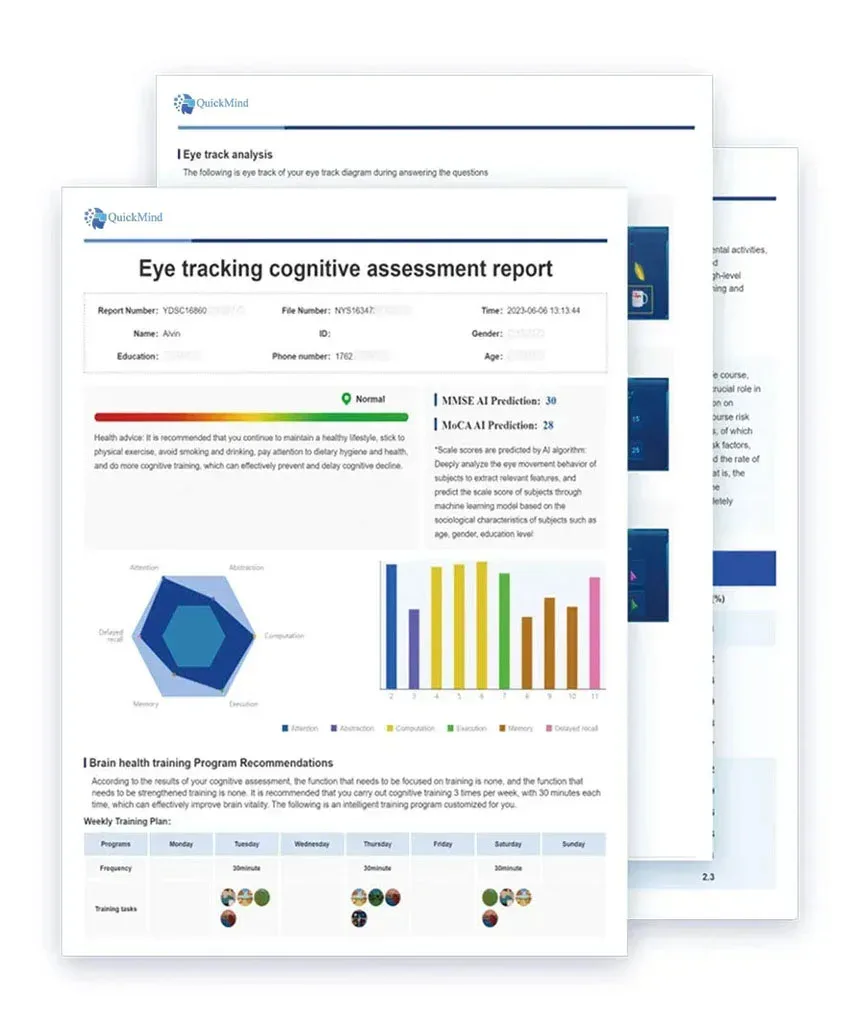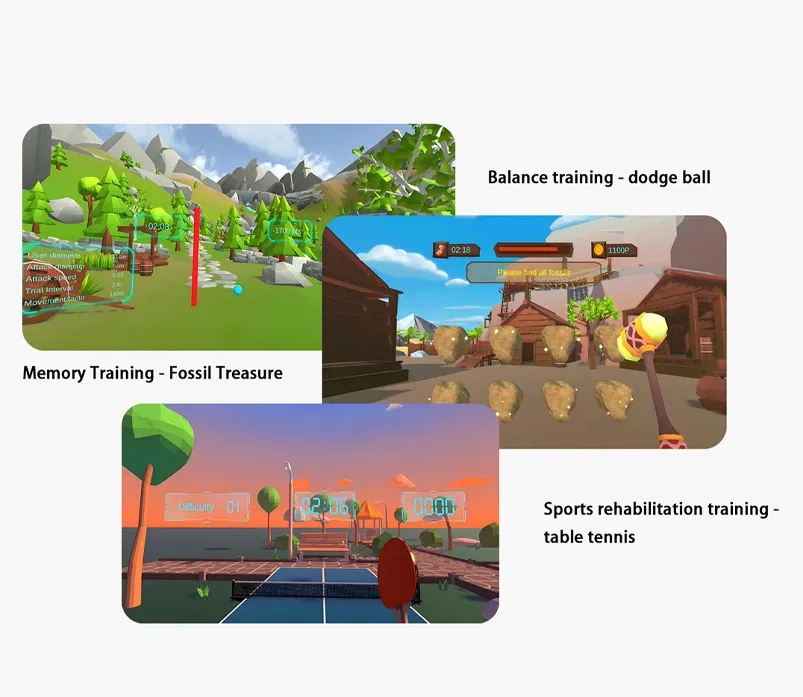
Progressive analyses demonstrates that augmented reality platforms approach can dramatically improve the quality of patients living with brain function deterioration. By taking them to quiet backgrounds, VR creates a original means for neural stimulation, sentimental adjustment, and interpersonal communication. Numerous investigations have indicated that VR therapy can mitigate turmoil, fear, and misery in dementia subjects while also refining their cognition, engagement, and communication skills.
- VR empowers subjects with dementia to rehash dear memories through dynamic representations.
- Additionally, it can deliver a risk-free and helpful space for social contact, developing a feeling of affiliation and togetherness.
- Specialists believe that VR therapy has the promise to remodel dementia service by delivering new and innovative avenues to combat the intricate problems faced by individuals experiencing this disorder.
Innovative Tech Treatments for Alzheimer's
Advancing software-based therapeutics are proving useful in the sphere of cognitive enhancement for persons suffering from Alzheimer's disease. These applications harness electronic devices to activate brain function and maybe retard the worsening of the condition. Motivating regimens, personalized evaluation, and brain-computer training are some models of approaches being explored in this changing domain. While studies are continuing, digital therapeutics present a supportive roadway for advancing the health of those living with Alzheimer's ailment.Virtual Scenario Navigation in Alzheimer's Treatment
Pertaining to subjects dealing with neurodegenerative Alzheimer's type, the slow weakening of remembrance and brain functions can notably weaken their capacity to relate with the immediate surroundings. This harmful condition often produces in solitude, distress, and a limited self-concept. Latest advancements in virtual reality technology show a state-of-the-art pathway to address these problems by establishing immersive settings that can trigger the brain and foster cognitive function.
Digital reality environments engineered specifically for those with Alzheimer's can send them in familiar venues, such as their youthful dwelling or a well-liked park area, recalling positive memories and easing anxiety. Through interactive exercises, these virtual universes can also test cognitive abilities like remembrance, concentration, and reasoning.
The beneficial impacts of virtual reality in Alzheimer's intervention are great. Early research have shown promising results, with participants demonstrating improvements in cognitive operation, mood, and overall quality of life. As this platform continues, it holds the key to revolutionizing the way we approach Alzheimer's disease, presenting a new pathway for assistance and enabling.
VR Reminiscence Therapy for Alzheimer's Patients
Reminiscence therapy is a widely recognized technique used to strengthen cognitive function and emotional well-being in individuals with Alzheimer's disease. This long-standing form of therapy involves inducing patients to remember past experiences, often through narratives. However, a pioneering approach is emerging: VR-mediated reminiscence therapy.
This immersive system utilizes virtual reality headsets to convey patients in lifelike environments that invoke memories from their past. By recapturing these replicated atmospheres, individuals with Alzheimer's can bond with their past in a powerful way.
VR's Promise for Dementia Care: Enhancing Memory and Cognition
Virtual reality (VR) is emerging as a up-and-coming instrument in the fight against dementia, affording cutting-edge ways to engage memory and cognition. By building immersive experiences, VR can empower individuals with dementia access memories, associate in meaningful activities, and boost cognitive competencies. Studies have shown that VR interventions can produce marked improvements in memory recall, attention, and navigational awareness. Moreover, VR provides a comfortable and supportive space for individuals with dementia to demonstrate, reducing feelings of isolation and anxiety.
- Besides, VR can be modified to individual needs and preferences, granting heightened levels of integration.
- Considering the capabilities of VR, ongoing research is needed to fully understand its long-term success in dementia care.
Renewing Memories, Enhancing Relationships: VR for Alzheimer's Social Health
Virtual virtual worlds is emerging as a cutting-edge mechanism in the sector of Alzheimer syndrome. By designing absorbing and communicative worlds, VR has the possibility to revive memories, build social interaction, and improve the overall quality of life for subjects managing Alzheimer's. Prominently an compelling aspects of VR is its ability to carry users to nostalgic venues and encounters from their past. Whether it's a exploration of a childhood Cognitive function assessment home or a simulation of a beloved holiday, these virtual visits can recall happy memories and improve cognitive performance. Furthermore, VR can facilitate social interaction by joining individuals with others who share similar memories. This can be particularly useful for people with Alzheimer's who may struggle with traditional social contact. By establishing a safe and captivating virtual space, VR can mitigate feelings of isolation and loneliness, which are common among users diagnosed with Alzheimer's. Overall, VR holds immense capacity for remodeling the lives of individuals with Alzheimer's by resurrecting memories, reestablishing connections, and elevating their quality of life. As technology proceeds to grow, we can expect even more novel applications of VR in the field of dementia care.Incorporating Cognitive Training: Employing VR Tools for Alzheimer's Care
Artificial reality platforms is rapidly emerging as a breakthrough tool in the realm of cognitive training, particularly for subjects dealing with Alzheimer's disease. By immersing patients in interactive and engaging virtual environments, VR-based interventions can advance cognitive functions such as memory, attention, and problem-solving. These games typically incorporate elements of storytelling, exploration, and social interaction, making the training process deeply involving. Studies have shown that VR-based cognitive training can lead to significant improvements in cognitive performance, maybe delaying the progression of Alzheimer's symptoms. Moreover, VR provides a safe and controlled environment for patients to practice new skills and strengthen their confidence.
- Play-based techniques in VR training can make it greatly motivating and entertaining for patients with memory problems.
- VR simulations can offer believable scenarios that provoke and motivate cognitive functions.
- Personalized VR experiences can cater to unique demands and approaches.
Investigating VR Benefits in Dementia Management
Engaging synthetic surroundings offer a fresh and advantageous avenue for patients with cognitive decline. These methodologies can reproduce familiar environments, allowing those affected by cognitive decline to recapture cherished memories and foster a sense of familiarity. By alleviating the challenges of dementia, VR settings have the ability to enhance quality of life for both subjects and their advocates.
- Examinations indicate that VR interventions can substantially impact cognitive function, behavioral well-being, and even motor abilities in individuals with dementia.
- Moreover, VR creates a safe and regulated environment for experience, reducing the risk of anxiety.
- What is more, VR can facilitate social bonds by allowing individuals with dementia to engage in augmented activities with others.
Game-Changing VR Solutions for Early Alzheimer's Assessment
Alzheimer's disease poses a complex obstacle, often being latent in its early stages. Albeit, virtual reality (VR) is appearing as a advanced tool for identifying the disease at an early stage. Through immersive environments, VR can analyze cognitive function in ways that traditional methods have difficulty to. This prospect allows for rapid assistance strategies, potentially inhibiting disease progression and boosting the quality of life for participants with Alzheimer's.
- Virtual reality tools assess memory, concentration, and spatial cognition under supervision.
- Tailored VR programs enable patients to partake in mental activation tasks.
- Digital virtual settings create opportunities for people with Alzheimer's to link and participate.
Enhancing Dementia Communication and Social Interaction Via VR
{In the realm of dementia care, innovative technologies are emerging to strengthen the lives of persons with neurodegenerative disorders. Virtual reality (VR) is one such system that holds immense potential for closing social and communicative divides common in dementia patients. By constructing engaging artificial realities, VR can activate cognitive function, reduce behavioral issues, and ultimately improve the overall well-being of persons diagnosed with dementia.
VR experiences aligned with dementia treatment goals can range from remembering therapy sessions that transport participants to cherished memories, to interactive games that promote social interaction and cognitive stimulation. Furthermore, VR has the ability to connect users experiencing dementia with caregivers, regardless of physical separation, fostering a sense of community.
- VR can empower in reducing agitation and anxiety by providing a calming and captivating environment.
- Clinical trials have shown that VR interventions can lead to improvements in cognitive function, mood, and social interaction in people affected by dementia.
- As technology grows in advance, we can expect even more innovative and {effective|beneficial|helpful|powerful|impactful|successful|productive|efficient
